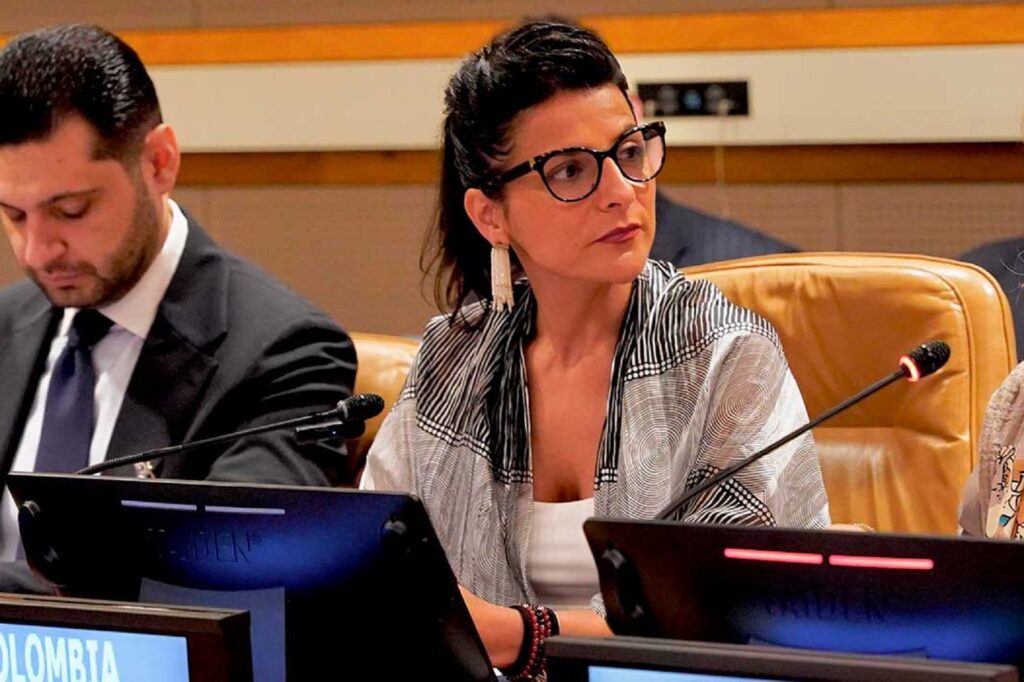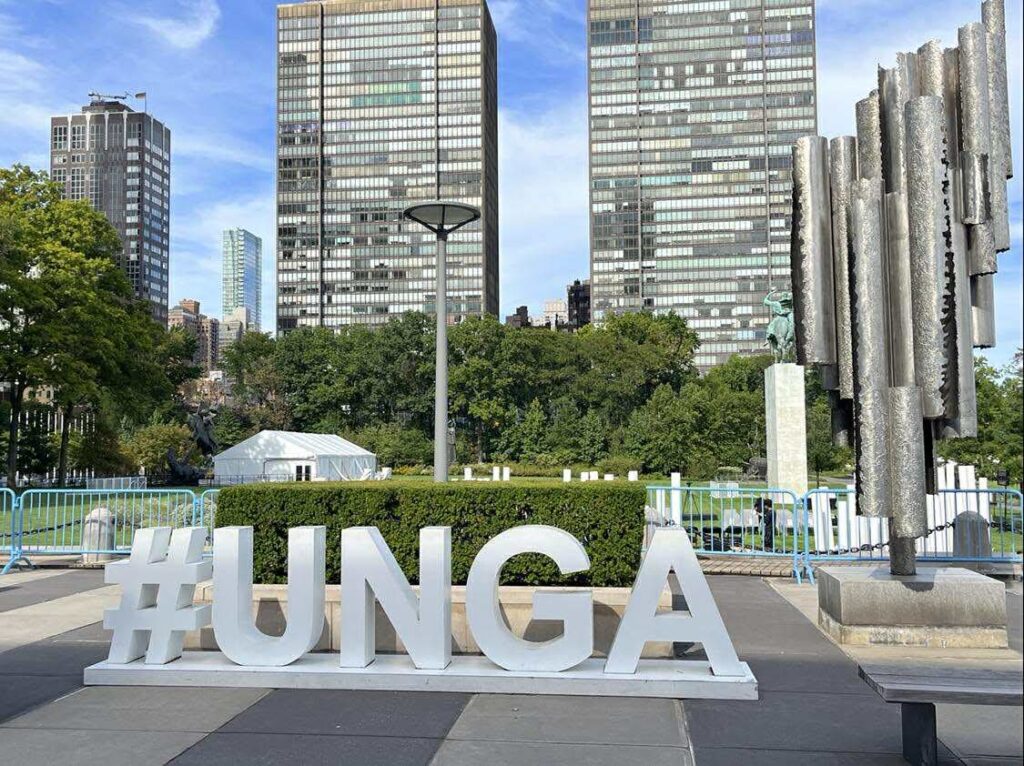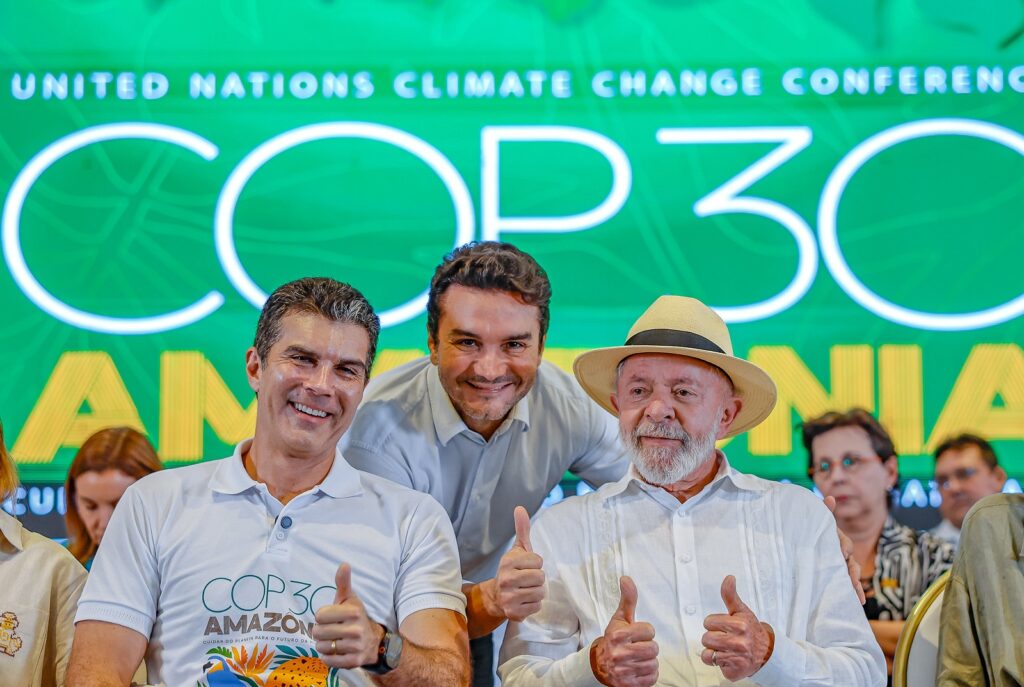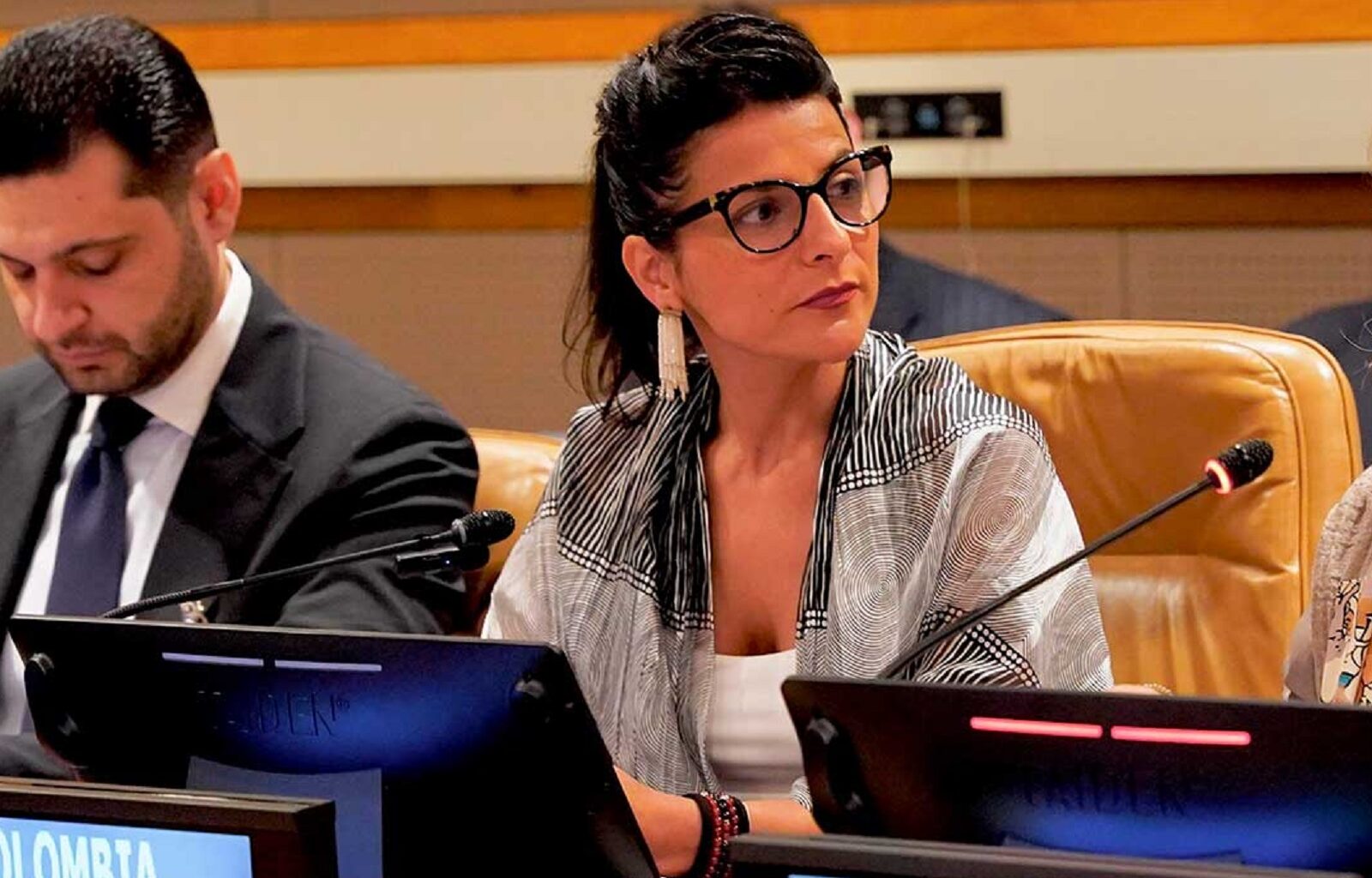
Colombia presented a proposal to unite climate and biodiversity agendas during UNGA week and as a preliminary proposal to COP30. Credit: Ministry of Environment.
In the framework of the United Nations General Assembly (UNGA) and Climate Week, Colombia organized the ministerial event “Toward a Resilient Future: Synergies Between Climate and Nature Ahead of COP30.” There, Minister of Environment Irene Velez presented the country’s main proposal: integrating biodiversity into the global climate agenda.
During the event — which brought together ministers, senior officials, and international partners with the goal of positioning this initiative ahead of COP30 on Climate Change — Velez delivered a strong message: “Let’s be honest: the division between the climate crisis and the biodiversity crisis is false. That fragmentation only benefits the fossil fuel industry and fuels green capitalism. In reality, this is one single crisis.”
In her remarks, the minister warned that ecosystem degradation threatens global economic and social stability. “Half of the world’s GDP depends on rich ecosystems. Without forests, rivers, and soils there is no economic stability, no food security, no future,” she said.
Colombia pushes to unite climate and biodiversity agendas at UN ahead of COP30
As previously announced, the Colombian delegation in New York used the most important week of the year at the United Nations to present its environmental proposals, one of the most sensitive issues on Colombia’s government agenda.
In this regard, the South American country is pushing for a new item to be included on the COP30 agenda, scheduled for next November in Brazil. The proposal seeks to establish a guiding framework to integrate synergies between climate change, biodiversity, and land finance into the actions needed to meet global climate goals.
The first step proposed by Colombia is for COP30 to establish a Special Expert Group tasked with formulating recommendations on how biodiversity should be incorporated into global decisions on climate action implementation.
To complement this, Colombia will also push for better coordination among the secretariats of the United Nations Framework Convention on Climate Change (UNFCCC), the Convention on Biological Diversity (CBD), and the Convention to Combat Desertification (UNCCD), to feed into those recommendations.
“We need a clear political mandate that turns science into binding multilateral decisions. The integration of climate, biodiversity, and land agendas is no longer optional: it is urgent,” stressed the minister.

Between Sept. 22 and 26, the United Nations General Assembly (UNGA) experiences its most important week. Credit: A.P. / Colombia One.
Amazon, custodian peoples, and fair financing
Velez also insisted that the Amazon must be at the center of this agenda and that Indigenous peoples, Afro-descendant peoples, and local communities must play leading roles in financing, governance, and decision-making.
“The peoples who are custodians of ecosystems are not secondary players. They are protagonists of solutions, and their voices must guide global action,” the minister emphasized, recalling that Colombia already granted these peoples co-management status in territorial governance at COP16 on biodiversity, held in Cali last year.
She also underlined the need to transform international financial systems: “We say no more to empty funds. The countries of the global south cannot remain trapped under debt ceilings while facing the climate crisis. We need sufficient resources and direct access for local communities with gender- and generation-based approaches.”
It is worth recalling that this financing issue was the most contentious debate at COP16 in Cali, to the point where the summit ended without agreement. Only months later was a minimal pact reached, which — as in previous instances — demonstrated how complex bridging the gap between the global north and south remains.
Finally, the Colombian minister said that actions to protect climate and biodiversity will not succeed as long as fossil fuels continue to be used, and she stressed the need to move immediately toward their phase-out through just transitions.
Just yesterday, Tuesday, Sept. 23, the country’s president, Gustavo Petro, reminded the UNGA plenary in his address that “according to scientific criteria, the planet has only 10 years left before reaching a point of no return” on climate change.
Petro recalled the repeated failures in this global struggle precisely due to disagreements over how to finance the energy transition. He openly criticized the most polluting countries of the developed north as responsible for refusing to honor the agreements made at previous climate crisis summits.
COP30, a decisive summit for the planet’s climate future
The Conference of the Parties (COP) is the annual meeting of the signatory countries of the United Nations Framework Convention on Climate Change (UNFCCC).
This 2025 meeting is known as COP30, as it will be the 30th edition of such summits, and will take place from Nov. 10 to 21 in Belem do Para, Brazil, in the heart of the Amazon. The choice of venue is meant to highlight the urgency of protecting one of the most important and threatened ecosystems on the planet.
COP30 comes in a context marked by the increase in extreme climate events and growing pressure from scientists and citizens for governments to accelerate their commitments.
At this summit, countries must present their new national emissions reduction plans, in line with the Paris Agreement, which aims to limit global warming to 1.5 degrees Celsius. It will therefore be a key moment to assess whether nations are living up to their promises and whether there is political will to raise ambition.
Among the main challenges are climate financing — particularly meeting the pledge to mobilize US$100 billion annually to support low- and middle-income countries — the energy transition to clean and affordable sources, and biodiversity protection, with the Amazon as the central symbol of that struggle.
COP30 will not only be a space for negotiation but also a test of credibility for international cooperation in the face of the most serious climate crisis in history.

The COP30 summit will be held in November in Belem, Brazil. Credit: Palacio do Planalto, CC BY-ND 2.0 / Flickr.
